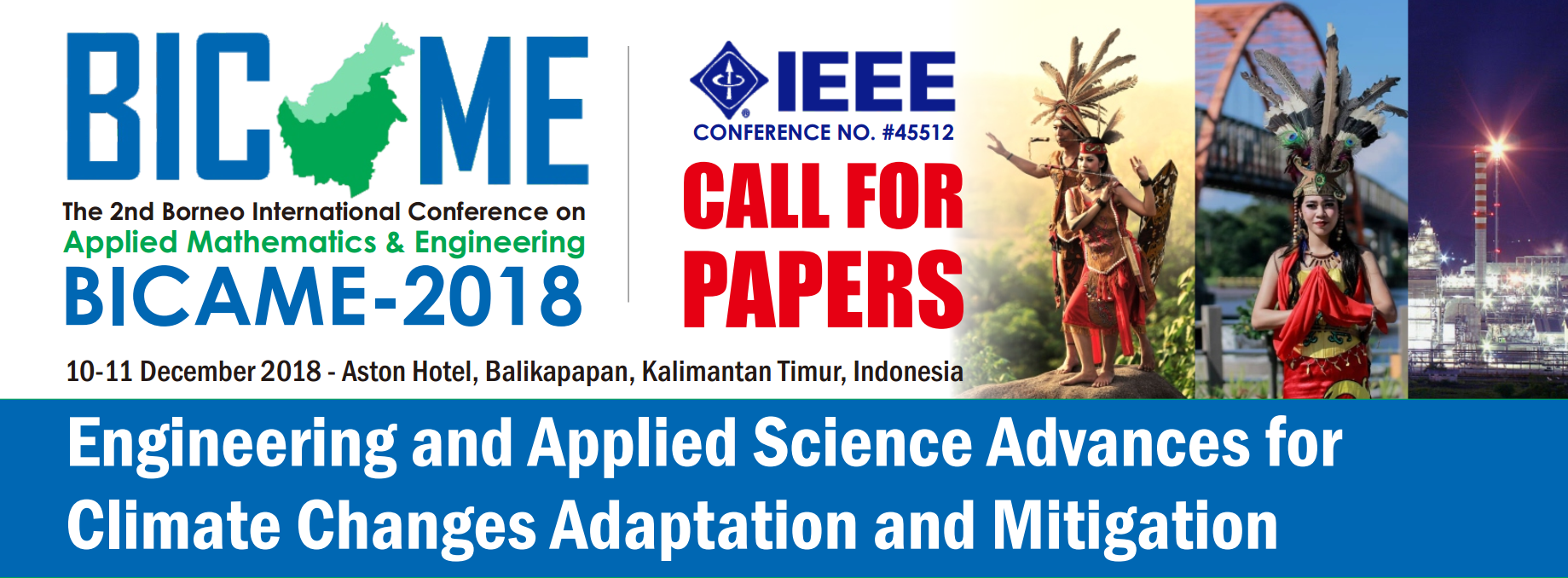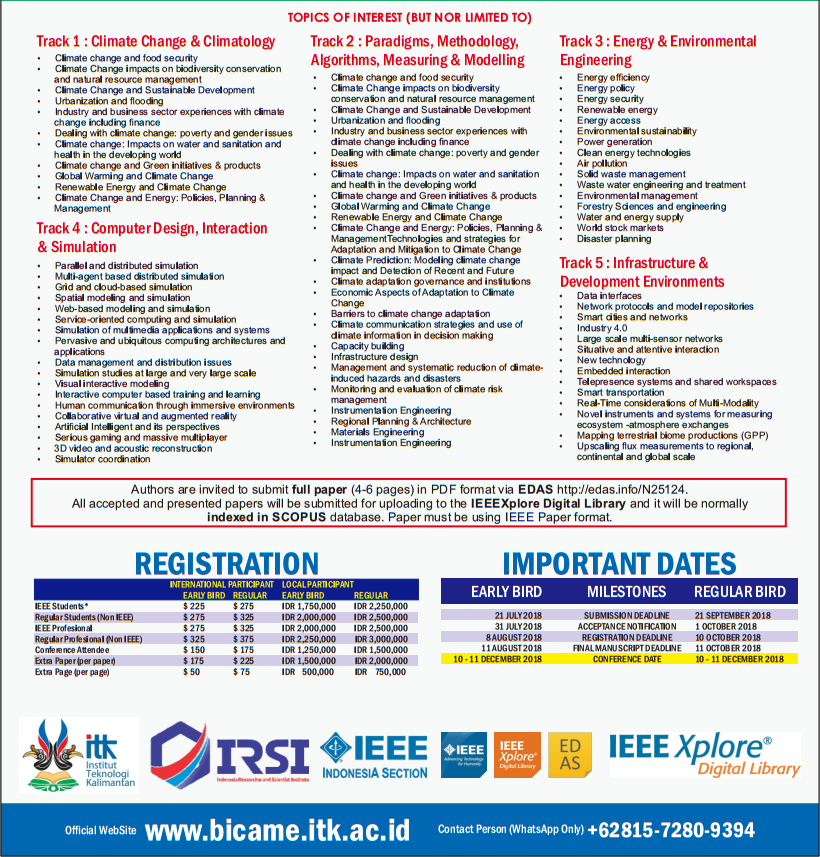Institut Teknologi Kalimantan is going to organize 2nd Borneo International Conference on Applied Mathematics and Engineering (BICAME) 2018 which will take place from 10 – 11 December 2018 in Aston Hotel, Balikpapan, Indonesia.
The theme of this year’s BICAME is
“Engineering and Applied Science Advances for Climate Changes Adaptation and Mitigation”
The conference will gather leading ecologists, chemists, physicists, biologists, material scientists, biomedical researchers, engineers, social workers and other researchers around the world who are active at the frontiers of this diverse and multidisciplinary field.
BICAME 2018 invites original contributions on the following topics (but not limited to):
Track 1
Climate Change & Climatology
- Climate change and food security
- Climate Change impacts on biodiversity conservation and natural resource management
- Climate Change and Sustainable Development
- Urbanization and flooding
- Industry and business sector experiences with climate change including finance
- Dealing with climate change: poverty and gender issues
- Climate change: Impacts on water and sanitation and health in the developing world
- Climate change and Green initiatives & products
- Global Warming and Climate Change
- Renewable Energy and Climate Change
- Climate Change and Energy: Policies, Planning & Management
Track 2
Paradigms, Methodology, Algorithms, Measuring & Modeling
- Technologies and strategies for Adaptation and Mitigation to Climate Change
- Climate Prediction: Modeling climate change impact and Detection of Recent and Future
- Climate adaptation governance and institutions
- Economic Aspects of Adaptation to Climate Change
- Barriers to climate change adaptation
- Climate communication strategies and use of climate information in decision making
- Capacity building
- Infrastructure design
- Management and systematic reduction of climate-induced hazards and disasters
- Monitoring and evaluation of climate risk management
- Instrumentation Engineering
- Regional Planning & Architecture
- Materials Engineering
- Instrumentation Engineering
Track 3
Energy & Environmental Enginering
- Energy efficiency
- Energy policy
- Energy security
- Renewable energy
- Energy access
- Environmental sustainability
- Power generation
- Clean energy technologies
- Air pollution
- Solid waste management
- Waste water engineering and treatment
- Environmental management
- Forestry Sciences and engineering
- Water and energy supply
- World stock markets
- Disaster planning
Track 4
Computer Design, Interaction & Simulation
- Parallel and distributed simulation
- Multi-agent based distributed simulation
- Grid and cloud-based simulation
- Spatial modeling and simulation
- Web-based modeling and simulation
- Service-oriented computing and simulation
- Simulation of multimedia applications and systems
- Pervasive and ubiquitous computing architectures and applications
- Data management and distribution issues
- Simulation studies at large and very large scale
- Visual interactive modeling
- Interactive computer based training and learning
- Human communication through immersive environments
- Collaborative virtual and augmented reality
- Artificial Intelligent and its perspectives
- Serious gaming and massive multiplayer
- 3D video and acoustic reconstruction
- Simulator coordination
Track 5
Infrastructure & Development Environments
- Data interfaces
- Network protocols and model repositories
- Smart cities and networks
- Industry 4.0
- Large scale multi-sensor networks
- Situative and attentive interaction
- New technology
- Embedded interaction
- Telepresence systems and shared workspaces
- Smart transportation
- Real-Time considerations of Multi-Modality
- Novel instruments and systems for measuring ecosystem -atmosphere exchanges
- Mapping terrestrial biome productions (GPP)
- Upscaling flux measurements to regional, continental and global scale


